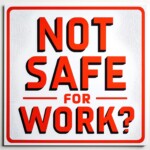
For Chief Audit Executives, Alignment Fuels Success
May 13, 2024
“Not Safe for Work:” Internal Auditors Should Follow Policies When Using AI
May 29, 2024Retaliation against internal auditors is not common, but it does happen. I have witnessed or been privy to countless instances in which internal auditors, who were simply doing their jobs, suddenly found themselves the subject of retribution. The perpetrators are often those who take exception to the results of an internal audit. Sadly, this is a hazard of the internal audit trade.
During my years as president and CEO of The IIA, I advocated strongly for the protection of internal auditors. When instances of retaliation occurred or were strongly suspected, I spoke out. Most times, the problem was in the public sector. But that was only because of greater transparency in government. I knew there were plenty of instances in the private sector, as well. Sadly, those cases often went unreported.
One of the more egregious instances of alleged retaliation I commented on during my IIA years involved the University of Western Washington. In late 2020, The Seattle Times published a story, “‘Culture of fear’ at Western Washington University after auditors fired, prompting lawsuits and resignations.” The article presented a chilling account of retaliation against not one, but two, chief audit executives of the school’s internal audit department.
I was quoted in that article as saying, “There appears to be an unfortunate pattern that has emerged. In decades in this profession, I’m hard pressed to recall many instances in which there have been two very high-profile cases like this that have occurred at the same organization around the same time.”
The first CAE lasted less than a year after his appointment and resigned under threat of termination. According to the Times, after the “former auditor sued, claiming he was pushed out over an audit of a former president’s travel expenses, Western settled for $216,000.” But that didn’t stop the next CAE from running into the same cultural brick wall at the university. She ended up suing for alleged retaliation and wrongful termination.
According to the Times account in 2020, that CAE “was fired soon after her office completed a contentious audit into the use of ‘ghost courses’ to pad students’ credit loads, which her office reported as fraud to federal investigators.”
As the Times reported over this past weekend, a Whatcom (WA) County jury recently awarded the second CAE nearly $3 million in damages for whistleblower retaliation. That included “$631,442 in back pay, the amount of money she lost from the date she was fired to the beginning of the trial. She also received $867,964 in ‘front pay,’ defined as the earnings she would have received for the rest of her life that she lost as a result of being fired. She was also awarded $1.5 million for emotional harm.”
The Times reporter tracked me down for comment. While I no longer speak for The IIA, I shared my personal thoughts on the verdict. I said it’s one of the largest settlements I’ve ever seen for this type of case, but absolutely appropriate given the egregious circumstances of the case.
Courageous internal auditors must be protected from such retribution. And this jury said it loud and clear: Retaliation against internal auditors will cost you big.
I have another message for audit committees and boards: If management is trying to protect its hide amid wrongdoing, you are the ones who should be standing up and protecting internal audit’s efforts to do its job. Don’t pretend to not know what’s happening. It shouldn’t be left up to an outside jury. The fallout could be much worse.
As the former CAE’s attorney noted following the jury’s verdict, “This is just one of those cases where the good guys won.”
I agree. And what a fitting exclamation point for Internal Audit Month.
I welcome your feedback on my perspectives via LinkedIn, X or by email to blogs@richardchambers.com.




I welcome your comments via LinkedIn or Twitter (@rfchambers).